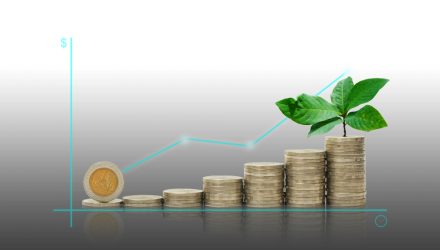More investors are embracing environmental, social, and governance (ESG) principles, prompting active managers to enhance their credibility on that front.
Actively managed funds are experiencing a renaissance of sorts, and with the industry looking for new frontiers that are conducive to this management, environmental, social and governance (ESG) investing stands out as a viable option.
“The investment management industry is in the midst of a fundamental shift, as the increased acceptance of material environmental, social and governance (ESG) characteristics as a driver of long-term investment performance comes together with investor demand that a portfolio’s social and environmental impact be considered alongside its return,” according to Neuberger Berman. “Many investors now expect that any robust investment process should integrate material ESG considerations, and they are increasingly seeking to define, measure and enhance the total impact of their investments.”
Passive and Active ESG Investing
“Passive strategies are typically implemented by utilizing third-party ESG data that rely heavily on voluntary company disclosure, can be backward-looking and limited in scope,” notes Berman. “Utilizing data can be valuable as a starting point, but limited in its absolute use. Because of the limitations in the quality, disclosure and other biases inherent with ESG data today, investors relying solely on data to make investment decisions are prone to missing a comprehensive risk-reward analysis. Multiple sources of data can provide the flexibility of a broader analysis and the ability to focus on the issues most relevant and material to the investment thesis.”
Regulators and lawmakers are beginning to step up. The European Union will set up performance thresholds from 2021 onward. Minimum safeguards will investors and companies transition into a greener economy. Portfolio managers of ESG funds in Europe will be required to explain how and to what extent companies are following sustainable steps. Data confirm getting active with ESG pays off.
“Over rolling one- and three-year periods since 1999, active ESG strategies beat their passive counterparts after fees more than 60% of the time across capitalizations and geographies. The success of active management was particularly pronounced in global and non-U.S. equity portfolios, as active outperformed passive at least 70% of the time,” notes Berman.
For more on active strategies, visit our Active ETFs Channel.
The opinions and forecasts expressed herein are solely those of Tom Lydon, and may not actually come to pass. Information on this site should not be used or construed as an offer to sell, a solicitation of an offer to buy, or a recommendation for any product.








